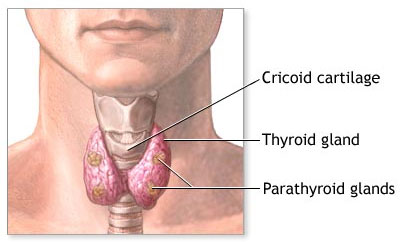 Learn More About Thyroid and Parathyroid Disease
Learn More About Thyroid and Parathyroid Disease
Before a person can learn about thyroid and parathyroid disease, they must first have a firm knowledge of what the human thyroid is. The thyroid is a gland whose shape resembles that of a butterfly. It measures approximately 5cm in size, and it can be found in the front of the throat, just underneath one’s voice box. It is just one of many glands that comprise the human body’s endocrine system.This article will inform you and tell you everything you need to know about thyroid and parathyroid disease.
As one of the chief glands of the endocrine system, the thyroid gland is responsible for monitoring and maintaining the body’s metabolism. For those who aren’t familiar with the term, the body’s metabolism is simply the manner in which the body uses energy. The thyroid is in charge of also maintaining brain development, cholesterol levels, calcium levels in the blood, skin and hair dryness, menstrual cycles in women and nervous system functions.
There are actually a number of different disorders that can affect the thyroid gland. The two most common of these disorders are hyperthyroidism (an overactive thyroid) and hypothyroidism (an underperforming thyroid). The parathyroid gland, which is a part of the thyroid gland, is susceptible to many of the same conditions that can strike the thyroid. This is why it is important for individuals to be vigilant and educate themselves about the thyroid and parathyroid disease, particularly if they have a history of it in their families.
Function and Location of The Parathyroid Glands
The parathyroid glands are quite small, only about the size of a pea. There are four of them. The primary function of these glands is to regulate the amount of calcium that is found in the bloodstream, as well as phosphorous levels. If the parathyroid glands produce too little or too much of the hormones they are responsible for, then it can have significant ramifications for the human body. Common causes of thyroid and parathyroid disease include endocrine disorders, injury to the glands, cancer or tumours, or genetic conditions.
If a person finds that they are suffering from the symptoms of any conditions associated with these glands, then they are strongly encouraged to contact their doctors quickly. These conditions are rarely life threatening, but the severity of the symptoms can severely disrupt a person’s quality of life, so they should be treated promptly. The good news is that, with the assistance of a doctor, they are fairly easy to treat.
If you have questions or concerns about thyroid problems see your local doctor who will arrange for you to see a thyroid surgeon.
